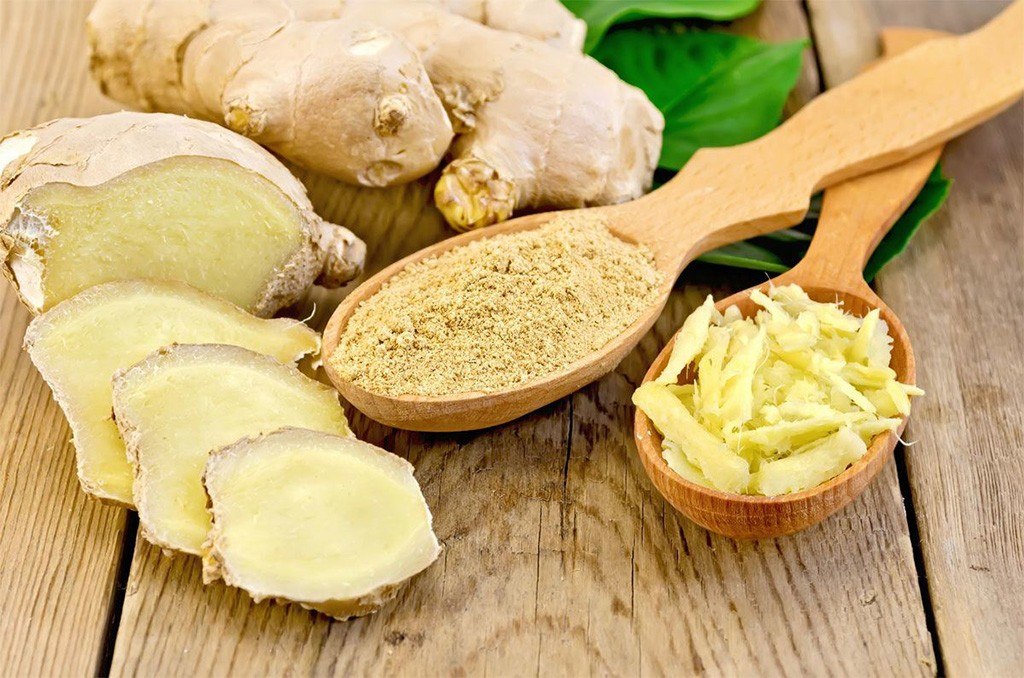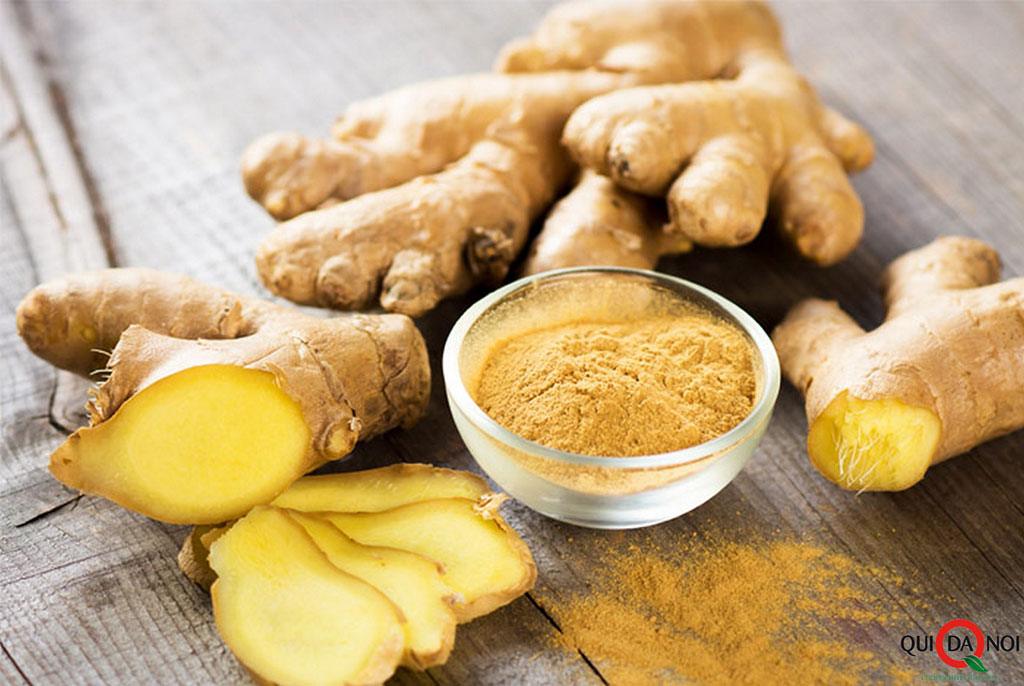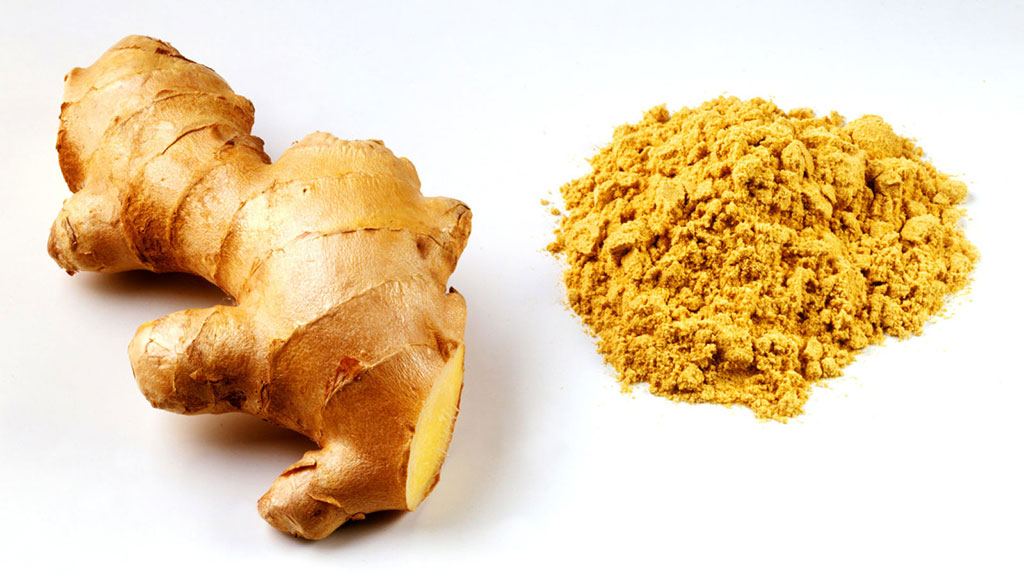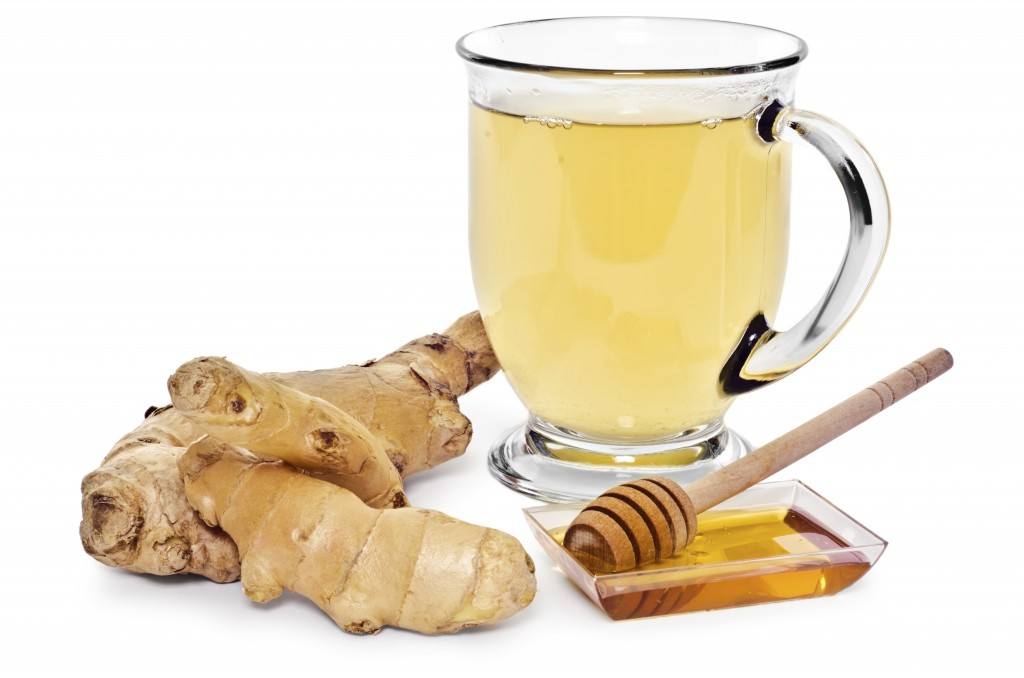Originating from China, ginger is a powerful and extremely beneficial spice that has been consumed for many years. They can be found in various forms – fresh, dried, ground/powdered, or juiced. It is one of the healthiest spices in the world due to its plethora of nutrients and bioactive ingredients.
- Ginger Contains Gingerol

Gingerol is one of the main medicinal compounds found in ginger. It is extremely potent in anti-inflammatory and antioxidant properties, making ginger very beneficial for consumption on a regular basis.
As little as 1 to 1.5 grams of ginger is sufficient to help relieve different types of nausea, including morning sickness, sea sickness, and nausea resulting from chemotherapy.
- Ginger Relieves Muscle Pain And Soreness

While the effects are not immediately noticeable, ginger has been shown to alleviate gradual muscle pain as well as soreness resulting from exercise (most likely due to its anti-inflammatory properties).
- Ginger Helps Fight Osteoarthritis

Osteoarthritis is a common chronic illness that occurs when the body’s joints degenerate, resulting in symptoms such as joint pain and stiffness. Unfortunately, osteoarthritis is a common health issue. A study of people with osteoarthritis in their knees found that those who consumed ginger extract reported less pain over time, and was less inclined to take pain medication.
- Ginger Lowers Blood Sugars And Reduces Risk Of Heart Disease

Emerging research is suggesting that ginger may have effective anti-diabetic properties, aiding in reducing blood sugar levels and lowering heart disease risk factors among patients who have type 2 diabetes. While this area of study is still quite new, and further research is required to support this hypothesis, the results from this small study hold promise for helping patients with type 2 diabetes.
- Ginger Aids In Digestion

Many people suffer from chronic indigestion (dyspepsia), which results in recurrent stomach pain and discomfort. It is hypothesized that delays in the emptying of the stomach can be a main contributing factor.
Ginger has shown to be an effective mediator in emptying the stomach, which can help individuals who have problems with indigestion and other stomach-related symptoms.
- Ginger Powder Helps To Reduce Menstrual Pain

Ginger has been shown to help with treating various types of pain, which includes menstrual pain. When female subjects in one study took 1 gram of ginger powder each day for the first three days of their menstrual period, they reported experiencing pain relief to the same effect as taking ibuprofen and other menstrual pain medication.
- Ginger Can Lead To Lower Cholesterol Levels

In studies on both humans and animals, the consumption of ginger has shown to significantly lower cholesterol. High levels of lipoproteins (LDL) – a “bad” type of cholesterol – can be impacted by the types of food that you eat. The studies suggest that ginger can help combat some of the negative effects that these foods have on your LDL cholesterol and blood triglyceride levels.
- Ginger May Help Prevent Cancer

There is a substance found in ginger that may help with cancer prevention: 6-gingerol. Raw ginger contains large amounts of 6-gingerol, which is believed to contain anti-cancer properties. While current research is not sufficient to confirm this hypothesis, one study of 30 human subjects found that 2 grams of ginger extract each day had a significant impact on lowering pro-inflammatory signaling molecules in the colon.
- Ginger Improves Brain Function And Helps Combat Brain Diseases

Brain diseases are serious problems that can completely inhibit a person’s normal, everyday activities. Some diseases, like Alzheimer’s, can have devastating and debilitating effects. It is believed that oxidative stress and chronic inflammation are some of the main contributors to the onset of Alzheimer’s disease. Research conducted on animals suggest that the antioxidants and bioactive compounds found in ginger can help combat or reduce inflammation in the brain. Other research also indicates that ginger can protect individuals from damage to the brain that naturally comes with the aging process.
- Gingerol Helps To Treat Infections

Gingerol, the active ingredient in ginger, has been shown to reduce the risk of infections. Ginger extract has been found to prevent the growth of various types of bacteria, and is quite useful in fighting certain bacteria- and virus-related illnesses, such as gingivitis and respiratory infections.
Be sure to SHARE this important information with your family and friends.







![[MUST READ] 7 Things Some Ladies Keep Away From Their Men.](https://feedleaks.com/wp-content/uploads/2016/04/life-time-compressor-218x150.jpg)




















